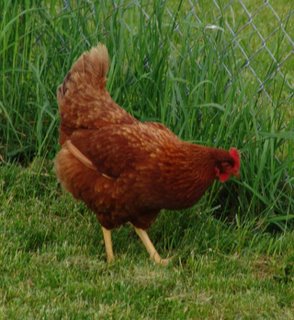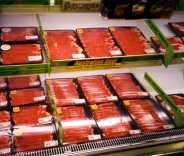Animals, Part 6 (The End)
I’m going to wind down my series on why we own animals. I don’t have much more to share about why we raise animals, except for one thing. This is difficult to put into words, but I will try.
In the Bible, caring for the land and animals was a blessing in the Garden of Eden. After the fall, it became a curse because of all the hard work (thorns, death, and all that stuff). But God still blessed this hard work caring for the land - when the worker’s heart was right with God. Remember Cain and Abel? Cain cared for a garden and Abel cared for animals. Both did hard work to bring their offering to God. Only one made their offering with a right attitude.
Combined with a desire to worship God with our very lives, tending to farm animals (as well as gardening) is a spiritual act. It is something that brings the spiritual into the physical realm. God is not gnostic. We are partnering with God to do such things as: bring forth life, bring sustenance to our families, and working hard to care for His creation (our children, the earth, and the animals in it). It is the kind of hard work that is fulfilling physically and spiritually.
I hope you have enjoyed this series of blog posts on raising animals. What it has not been, is a reason why everyone should raise animals. I’m not saying that. I’m not saying that people who don’t raise animals or have a garden are not serious about their health, their children, or God. These are just the reasons why we do raise animals. What I haven’t quite figured out yet, is how people who raise animals and homeschool and cook from scratch avoid burnout. Feel free to leave advice here.
In the Bible, caring for the land and animals was a blessing in the Garden of Eden. After the fall, it became a curse because of all the hard work (thorns, death, and all that stuff). But God still blessed this hard work caring for the land - when the worker’s heart was right with God. Remember Cain and Abel? Cain cared for a garden and Abel cared for animals. Both did hard work to bring their offering to God. Only one made their offering with a right attitude.
Combined with a desire to worship God with our very lives, tending to farm animals (as well as gardening) is a spiritual act. It is something that brings the spiritual into the physical realm. God is not gnostic. We are partnering with God to do such things as: bring forth life, bring sustenance to our families, and working hard to care for His creation (our children, the earth, and the animals in it). It is the kind of hard work that is fulfilling physically and spiritually.
I hope you have enjoyed this series of blog posts on raising animals. What it has not been, is a reason why everyone should raise animals. I’m not saying that. I’m not saying that people who don’t raise animals or have a garden are not serious about their health, their children, or God. These are just the reasons why we do raise animals. What I haven’t quite figured out yet, is how people who raise animals and homeschool and cook from scratch avoid burnout. Feel free to leave advice here.













